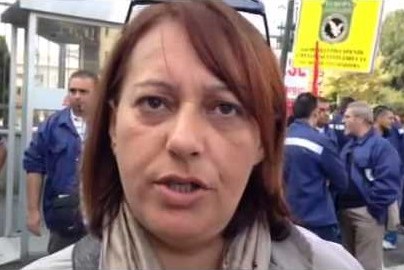

Alfa Romeo in Arese has represented one of the most important production sites in Italy, due to its trade union culture and history. It was here, in the beginning of her trajectory as a trade union delegate, that Stefania Filetti heard of EWCs for the first time, although she had never been part of one. At the time, discussing international issues was not something that happened every day, but the intuition of some officials, together with the interest that the newborn directive on works councils was generating, opened the door to the rich current debate.
In view of the changes that have taken place in recent years, do you think that EWCs have acquired a new potential?
EWCs have a lot of potential. One of the most important aspects is the increase in coordination among trade union organizations and among delegates from different countries. In some cases, it is already a reality. From my point of view, for instance, being able to rely on a constant dialogue between delegates has led to my getting a precise idea about what these years of crisis will leave us with. I can now sense what will come, how the national negotiation will evolve, and how all this will influence second-level contracts. Many of the future abilities of EWCs will depend very much on the political choices we will make.
Are you referring to the possibility of giving EWCs negotiating power?
EWCs should have that power. But first, we need to define some aspects. We need to have a precise vision of the type of negotiation we are referring to. Could it be a negotiation that is limited to some issues? Could it concern the strategic lines? One aspect to be considered is that trade union organizations need to yield sovereignty to the EWC: this is not banal, and it could have quite a bit of trouble in store, both concerning the different labor legislations, and concerning the different systems of negotiation that exist in different countries.
Is there an antidote?
Maybe not just one. I think, however, we should focus on training and education. There is no doubt that the members of EWCs need to receive resources and constant training courses. We need to unionize the works councils, and this can be obtained by giving them bargaining power, which leads us back to the point we were making before. Either we go this way, or EWCs will again have a function that is only based on providing information.
Do you think that information and consultation are weak priorities for the EWC?
Not exactly. The right to receive information and with it consultation is an extremely important tool, without which the EWC would have no reason to exist. The improvements, good practices and successes obtained throughout time are based on these fundamental elements. But, they are not enough, if we aim at a role of more negotiation for EWCs. In short, we have to push multinational companies to seriously interact with trade union organizations, before they make any choice.
Considering the situation today, do you think that the action of EWCs can influence negotiation on the territory?
I have some doubts on this point. Let’s look at the most recent years: we have seen only reductions, limitations of rights and savings on the cost of labor in all the countries of the EU. If this is message that is being passed, I think that the influence EWCs can have on second-level negotiation – and here I’m thinking mainly about those works councils that are closer to companies than to workers – can even be negative. This being said, you always have to grab any good occasion arising from the confrontation. To get back to the issue of negotiation, if one country is more advanced than another, we certainly also need to use the EWC to make them reach the same level.
This project has been funded with support from the European Commission. This publication reflects the views only of the author, and the Commission cannot be held responsible for any use which may be made of the information contained therein.
Downloads
- REPORT FINALE ICARUS (261.1 KiB, 1,772 hits)
 Coorindamento per andare oltre la direttiva
Coorindamento per andare oltre la direttiva
Date: Wed Sep 30 13:31 A cosa servono i CAE
A cosa servono i CAE
Date: Wed Sep 30 13:28 Statistiche sui CAE
Statistiche sui CAE
Date: Wed Sep 30 13:20
-

-

ANTONIO ZAGARI – EWC SUEZ, FIOM CGIL, MILAN
12 September 2016 By Dedalus -

MARIO ONGARO – THE COORDINATOR OF FISAC CGIL INTERNATIONAL DEPARTMENT
12 September 2016 By Dedalus
-

José Manuel López Viñolo, EWC Saica Pack, CCOO de Catalunya
16 February 2016 By Dedalus -

-

Andrea Capelli – Solvay EWC, Filctem Cgil, Milan
12 July 2016 By Dedalus
-

GIULIO REGENI – UNDERSTANDING THE EGYPTIAN DEMOCRATIC WORKERS MOVEMENT
12 September 2016 By Dedalus -

Sonia Cattaneo – EWC Air Liquide, FEMCA CISL Milan
15 February 2016 By Dedalus -

Juan Ramón Amorós, EWC Boehringer-Ingelheim, CCOO
16 February 2016 By CCOO de Catalunya

Sito web a cura del Dipartimento Internazionale di CGIL Lombardia: internazionale@cgil.lombardia.it (Responsabile Fabio Ghelfi).



Leave a reply